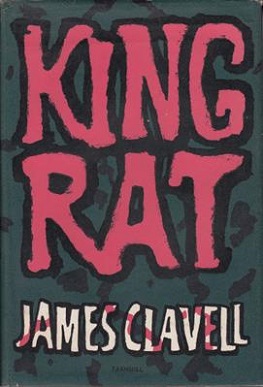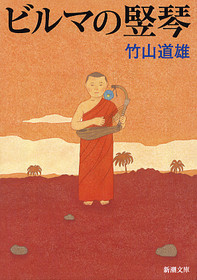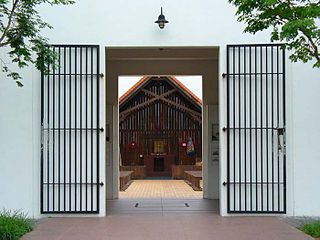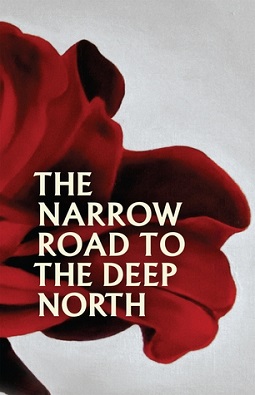External links
- Edwards, Jack; Walter, Jimmy (1991). Banzi you Bastards!. Souvenir Press Ltd. ISBN 0-285-63027-X. A book about the same prison camp.
- A War Story at IMDb
- Watch A War Story at NFB.ca
| A War Story | |
|---|---|
| Directed by | Anne Wheeler |
| Written by | Anne Wheeler |
| Produced by | Tom Radford Anne Wheeler |
| Starring | David Edney Frank C. Turner |
| Narrated by | diary Donald Sutherland story Anne Wheeler |
| Cinematography | Robert Nichol Ron Orieux |
| Edited by | Ray Harper |
Production company | |
| Distributed by | National Film Board of Canada (NFB) |
Release date |
|
Running time | 82 minutes |
| Country | Canada |
| Language | English |
A War Story is a 1981 Canadian docudrama produced, written, and directed by Anne Wheeler. It tells the story of her father Major Ben Wheeler when he was captured by the Japanese during the Second World War.
The film also shows the Japanese perspective as it shows the harsh, inhuman treatment of the POWs. During that time, A Japanese soldier would kill himself before allowing himself to be taken prisoner. This cultural difference caused the Japanese to look at captured soldiers as having no honour. At the end of the film, as the Americans arrived to liberate the camps, many of the Japanese guards at the camp committed suicide rather than become prisoners.
Major Ben Wheeler was a Canadian doctor assigned to Singapore when the Japanese forced an unconditional surrender of the British in 1942. The movie recounts, through the pages of his diary, the traumatic experiences of himself and his comrades as POWs in the Kinkaseki POW camp (a mining labour camp in northern Taiwan).
The story is conveyed from two perspectives: the narration of Ben Wheeler's diary (by Donald Sutherland) with dramatized scenes of life in the camp and archival footage of related events, and the vivid, personal stories of Dr. Wheeler's surviving fellow POWs. The film flashes between the story of the camp and Wheeler's family life before and after the war, as well as interviews of the survivors giving perspectives of the events described by Dr Wheeler.
Dr Wheeler is the protagonist who is portrayed as the major reason the other British POWs survived, both physically and mentally. This is affirmed by his overarching concern for his men in his writing, other than longing for his wife and family, with the exception of his love and longing for his family. Evidence of feats, compassion and selflessness are also abundantly given by the interviewees, who all owed their lives to him.
Although the Japanese captors are no doubt the cruel and humiliating antagonists, the film does not demonize them. In fact, the final interviewee provides some insightful revelation on how he and his comrades perceive their captors, and the effect of his experience on his life.

A prisoner of war (POW) is a person who is held captive by a belligerent power during or immediately after an armed conflict. The earliest recorded usage of the phrase "prisoner of war" dates back to 1610.

King Rat is a 1962 novel by James Clavell and the author's literary debut. Set during World War II, the novel describes the struggle for survival of American, Australian, British, Dutch and New Zealander prisoners of war in a Japanese camp in Singapore. Clavell was a prisoner in the Changi Prison camp, where the novel is set. One of the three major characters, Peter Marlowe, is based upon Clavell.

The Raid at Cabanatuan, also known as the Great Raid, was a rescue of Allied prisoners of war (POWs) and civilians from a Japanese camp near Cabanatuan, Nueva Ecija, Philippines. On January 30, 1945, during World War II, United States Army Rangers, Alamo Scouts and Filipino guerrillas liberated more than 500 from the POW camp.
Ernest Gordon was the former Presbyterian dean of the chapel at Princeton University. A native of Greenock, Scotland, and the son of James Gordon and Sarah R MacMillan, as an officer in the Argyll and Sutherland Highlanders, Gordon spent three years in a Japanese prisoner of war (POW) camp during the Second World War. He chronicled his experiences on the Death Railway in his book Through the Valley of the Kwai. The book served as an inspiration to the film To End All Wars, where he was portrayed by actor Ciarán McMenamin. The film opened in 2001, and the film's DVD release, which came out after his death, dedicated the film to his memory.

Jack Edwards, OBE was a British World War II army sergeant and a POW, most well known for his dedicated efforts of tracking down Japanese war criminals and his determination displayed in defending the rights of Hong Kong war veterans.

The Burmese Harp, also known as Harp of Burma, is a children's novel by Michio Takeyama. It was first published in 1946 and was the basis of two films by Kon Ichikawa – one released in 1956 and a color remake in 1985. Both films were major successes. A translation of the novel into English by Howard Hibbett was published in 1966 by Charles E. Tuttle Company in cooperation with UNESCO (ISBN 0-8048-0232-7).
Changi is a six-part Australian television miniseries broadcast by ABC TV in 2001. It originally aired from 14 October 2001 to 18 November 2001.

1971 is a 2007 Indian Hindi-language war drama film directed by Amrit Sagar, and written by Piyush Mishra and Amrit Sagar, based on a true story of Indian prisoners of war (POWs) captured by the Pakistan Army during the Indo-Pakistani War of 1971. The film is an account of the attempted escape of six personnel of the Indian Army taken as POWs. The war was preceded by a rebellion in East Pakistan to separate itself from West Pakistan and create a new country, Bangladesh. The film features an ensemble cast of Manoj Bajpayee, Ravi Kishan, Piyush Mishra, Deepak Dobriyal, Manav Kaul and others. At the 55th National Film Awards, it won the National Film Award for Best Feature Film in Hindi

The Changi Chapel and Museum is a war museum dedicated to Singapore's history during the Second World War and the Japanese occupation of Singapore. After the British Army was defeated by the Imperial Japanese Army in the Battle of Singapore, thousands of prisoners of war (POWs) were imprisoned in Changi prison camp for three and a half years. While interned there, the POWs built numerous chapels, one of which was named St George's Church.

During World War II, it was estimated that between 35,000 and 50,000 members of the Imperial Japanese Armed Forces surrendered to Allied servicemembers prior to the end of World War II in Asia in August 1945. Also, Soviet troops seized and imprisoned more than half a million Japanese troops and civilians in China and other places. The number of Japanese soldiers, sailors, marines, and airmen who surrendered was limited by the Japanese military indoctrinating its personnel to fight to the death, Allied combat personnel often being unwilling to take prisoners, and many Japanese soldiers believing that those who surrendered would be killed by their captors.
Major Ben Wheeler was a Canadian doctor in the British Army stationed in Singapore in 1942 when British forces unconditionally surrendered to the Japanese on February 15, 1942. He was imprisoned by the Japanese in Singapore and later moved to the Japanese colony of Formosa with other British prisoners of war (POWs). He was a camp doctor in each camp in which he was imprisoned. He survived the war and settled in Edgerton, Alberta, Canada.

Members of the German military were interned as prisoners of war in the United States during World War I and World War II. In all, 425,000 German prisoners lived in 700 camps throughout the United States during World War II.
Leslie John Audus was a British botanist and an international authority on the hormones that control plant growth. During World War II, while being held in a Japanese internment camp, he cultured yeast to feed and save the lives of his fellow POW's.

The Palawan massacre occurred on 14 December 1944, during World War II, near the city of Puerto Princesa in the Philippine province of Palawan. Allied soldiers, imprisoned near the city, were killed by Imperial Japanese soldiers. Only eleven men managed to survive.

The Railway Man is a 2013 war film directed by Jonathan Teplitzky. It is an adaptation of the 1995 autobiography of the same name by Eric Lomax, and stars Colin Firth, Nicole Kidman, Jeremy Irvine, and Stellan Skarsgård. It premiered at the 2013 Toronto International Film Festival on 6 September 2013.
Takashi Nagase was a Japanese military interpreter during World War II. He worked for the Kempeitai at the construction of the Burma Railway in Thailand, and spent most of his later life as an activist for post-war reconciliation and against Japanese militarism. He made over a hundred visits to Thailand, and from the 1970s, arranged several meetings between former Allied prisoners of wars and their Japanese captors, in efforts to promote peace and understanding. In 1993, he met and reconciled with British former POW Eric Lomax—in whose torture sessions Nagase had been involved—an encounter retold in Lomax's 1995 autobiography The Railway Man.

The Cowra Breakout is a 1984 Australian mini series based on the Cowra breakout, focusing on the friendship between an Australian soldier and Japanese prisoner.

The Narrow Road to the Deep North is the sixth novel by Richard Flanagan, and was the winner of the 2014 Booker Prize.

The Ascent is a 1994 American war adventure film directed by Donald Shebib. The film is an adaptation of a memoir by a then Italian prisoner of war in 1942 British East Africa who challenges his English captor in a climb of Mount Kenya.

"P.O.W." was an American television play that was broadcast by the American Broadcasting Company (ABC) on October 27, 1953. It was the first episode of the series The United States Steel Hour. The production examined the physical and mental suffering of former prisoners of war returning from the Korean War. Produced and directed by Alex Segal, the production starred Richard Kiley, Gary Merrill, and Brian Keith.